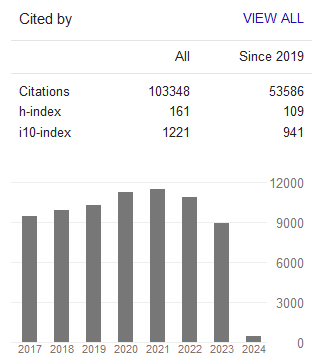Evaluation of the Success of Six Sigma Projects by Data Envelopment Analysis
- Hilmi Yüksel
Abstract
Six sigma provides a methodology for problem solving by using project management tools systematically. The
primary aim of six sigma applications is minimizing defects. Minimizing defects will ensure the outputs and
customers’ satisfaction increase and the costs decrease. However, the number of the firms that state that they
couldn’t get the results from six sigma programs as they expected is not few. The main reason for failure of six
sigma programs is not to balance the costs with gains of six sigma projects. So, evaluating the performance of six
sigma projects is an important issue for the firms that apply six sigma programs.
In this paper, data envelopment analysis was used to evaluate the performance of six sigma projects which is
stated as critical success factor for six sigma programs. Data envelopment analysis which is based on linear
programming helps to determine the efficient and inefficient decision making units by comparing the relative
efficiencies of decision making units. Recently, there are some papers in the literature which apply data
envelopment analysis for evaluating the performance of R&D and software projects. There are also some papers
which discuss the application of data envelopment analysis in the selection of six sigma projects. However
evaluating the performance of six sigma projects with data envelopment analysis was not discussed
comprehensively in the literature. This paper is original by showing that data envelopment analysis which can be
used in evaluating the performance of organizations can also be used for evaluating the performance of six sigma
projects. The application of data envelopment analysis for evaluating the performance of six sigma projects was
shown by a case study.
- Full Text:
 PDF
PDF
- DOI:10.5539/ijbm.v7n13p75
Journal Metrics
Google-based Impact Factor (2023): 0.86
h-index(2023): 152
i10-index(2023): 1168

Index
- Academic Journals Database
- AIDEA list (Italian Academy of Business Administration)
- ANVUR (Italian National Agency for the Evaluation of Universities and Research Institutes)
- Berkeley Library
- CNKI Scholar
- COPAC
- EBSCOhost
- Electronic Journals Library
- Elektronische Zeitschriftenbibliothek (EZB)
- EuroPub Database
- Excellence in Research for Australia (ERA)
- Genamics JournalSeek
- GETIT@YALE (Yale University Library)
- IBZ Online
- JournalTOCs
- Library and Archives Canada
- LOCKSS
- MIAR
- National Library of Australia
- Norwegian Centre for Research Data (NSD)
- PKP Open Archives Harvester
- Publons
- Qualis/CAPES
- RePEc
- ROAD
- Scilit
- SHERPA/RoMEO
- Standard Periodical Directory
- Universe Digital Library
- UoS Library
- WorldCat
- ZBW-German National Library of Economics
Contact
- Stephen LeeEditorial Assistant
- ijbm@ccsenet.org
